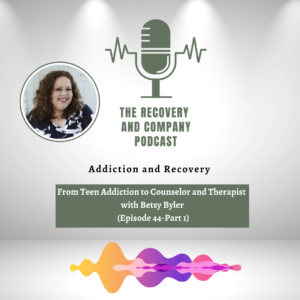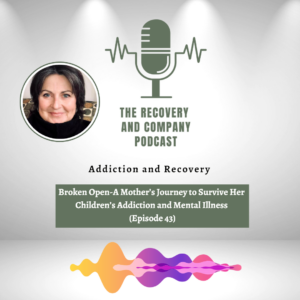If you are the parent of an adult child struggling with addiction you probably feel like you are constantly riding an unpredictable rollercoaster. Finding a balance between supporting your child and maintaining your sanity can seem as complex as the addiction itself. You have probably heard about ‘tough love’ but somehow you cannot muster the strength to enforce it.  Afterall, it goes against your very nature as a parent.
Afterall, it goes against your very nature as a parent.
You nurtured your child when they were little. You bandaged up their wounds. You rescued them. Your maternal instinct does not stop when your child grows up. It is only natural to want to rescue them now. So, you try, and try, and try even harder. You wonder how come it is not working this time?
You learn to endure silently. You stop asking for help because the advice you keep getting feels impossible to swallow.
What I am asking you to do is consider a compromise. One that allows you to help yourself and your child so you do not become emotionally and physically depleted.
You can suffer with your child, but it probably will not change anything.
Betsy Byler who is an addiction counselor and mental health therapist spends a lot of time talking parents through this process: “Addiction is not about whether someone loves you enough.  If love was enough to get people sober, people would get sober. It does not work that way, and I wish it did.” She says letting your kids roll over you is not helping them: “It is not changing the direction of the addiction, because that is not what’s at play here. The addiction is just using recourses to get its way. You can either get used up in that process, or you can protect the resources so that, the universe willing, when the kid is ready, you still have those resources.”
If love was enough to get people sober, people would get sober. It does not work that way, and I wish it did.” She says letting your kids roll over you is not helping them: “It is not changing the direction of the addiction, because that is not what’s at play here. The addiction is just using recourses to get its way. You can either get used up in that process, or you can protect the resources so that, the universe willing, when the kid is ready, you still have those resources.”
Understanding how addiction impacts the brain can help parents who are at their whit’s end.
Once an addiction sets in, it literally changes the structure of our brain. Drugs hijack the reward circuitry in our prefrontal cortex, flooding it with feel good chemicals. These same chemicals are released when we do things like eat, drink, or have sex. This system is designed to keep us alive. As the drugs begin to monopolize this area of the brain, the drug seeking behavior takes precedence over everything else. Once a full-blown substance use disorder sets in, the addiction takes on a life of its own. This is why our child or loved one can resort to behaviors that shock us, like stealing or living on the streets.
I am not saying this to excuse their actions. They are still responsible for their behavior. With help, accountability, and hard work, recovery is possible. After years of struggling with her own children’s addiction and mental illness, Maureen Towns has dedicated her life to helping other parents.  She tried everything and nearly lost herself in the process before finding her own recovery: “I tried the friendly parent; the friend parent; the harsh reality parent; the boundaries parent; the rules parent, the toe-to-toe parent; the tough guy-you must get out of here parent; the, oh my God, maybe you need to come back and live with us parent. I tried everything. During that time, I was becoming very…unwell.”
She tried everything and nearly lost herself in the process before finding her own recovery: “I tried the friendly parent; the friend parent; the harsh reality parent; the boundaries parent; the rules parent, the toe-to-toe parent; the tough guy-you must get out of here parent; the, oh my God, maybe you need to come back and live with us parent. I tried everything. During that time, I was becoming very…unwell.”
As the rollercoaster continued to veer out of control with Maureen’s kids, she jumped on the ride with them.
The more she tried to control the direction, the more guilty she felt: “There was lots of denial, and lots of questioning and lying awake at night worrying and wondering how we had screwed our kids up. Everything should be working out and it is not. I do not know where we have failed them, but we must have done something or not done something that has led us here. That then puts me into shame and fear and really trying to control, manage and adjust my position and try this and try that.”
As a nurse, Maureen lived to help others. She had seen her efforts pay off at work to some extent so she kept trying to ‘fix things’ with her kids: “I really identified as a caregiver. I am strong. I am a problem solver. I went at everything with that mindset. I can figure this out and I can solve it. If I work hard enough, I can fix it. I just need to keep trying to figure them out. The lesson learned in all of that is that you cannot control anyone; you are going to kill yourself trying, and like I said, I was very unwell.”
 When you are tempted to step in and ‘overhelp,’ the three C’s of Al-Anon can keep you grounded:
When you are tempted to step in and ‘overhelp,’ the three C’s of Al-Anon can keep you grounded:
-
You did not CAUSE it
-
You cannot CONTROL it
-
You will not CURE it
By now you may be thinking: “Ok, I get it, but what do I do? How do I help my kids and not lose myself in the process?”
According to Byler, you get to decide where your line is. The addiction is going to “do what it is going to do” until your child can get into treatment and “arrest what is happening in their body and brain.” Byler says she tries to help parents keep the door open under certain circumstances: “I am not going to tell you where to draw the line because wherever you draw it you need to be able to sleep at night. I am not going to ask you to draw a line that you are not ready to draw. I do want you to know that line may be coming.”
Our boundaries can ebb and flow. They can move and shift. They can start small and grow. It is not an all or nothing deal, it is a process.
Begin by examining your own life. Determine one or two areas where a change needs to occur between you and your child: “can you have this one small boundary?  This seems to be the biggest thing that brings the crazy of addiction into your life,” says Byler. “How can we keep the crazy out of that? Let’s make sure you are getting sleep. Let’s make sure you don’t have things around that you care about that could get stolen. What about making sure you can get to work so you are not getting called out all the time. How do you still love and have a door open? Whatever you are willing to do, and protect those parts. When parents can take that approach, they do come up with their own boundaries, even though I have never suggested it. This is not about tough love. This is a logical consequence.”
This seems to be the biggest thing that brings the crazy of addiction into your life,” says Byler. “How can we keep the crazy out of that? Let’s make sure you are getting sleep. Let’s make sure you don’t have things around that you care about that could get stolen. What about making sure you can get to work so you are not getting called out all the time. How do you still love and have a door open? Whatever you are willing to do, and protect those parts. When parents can take that approach, they do come up with their own boundaries, even though I have never suggested it. This is not about tough love. This is a logical consequence.”
As parents we are used to creating rules to manage our child’s behavior. Rules are about them. Boundaries are about you as the parent and what you need to function on a day-to-day basis.
You cannot control your adult child but “there is freedom if you can learn to relate to someone who is struggling in a different way,” says Byler. “In this way they know your boundary but they also know when they get to the point where they are like “I cannot live this way anymore,” they know that this person will help them.” The main thing to remember is that as a parent you need to take care of yourself so that you have mental, emotional, and physical resources available when your child does reach out for help. 
If you suffer with them, you will not be able to enjoy it if they do end up thriving because you will have been used up in the process.
You do not have to draw a line in the sand so to speak. Start slow and grow from there. As one friend said to me: “do what you can live with, not what everyone else tells you to do.”
I have interviewed both Betsy Byler and Maureen Towns on upcoming episodes of the Recovery and Company Podcast. Be sure and tune in as we cover this topic in much more depth.
